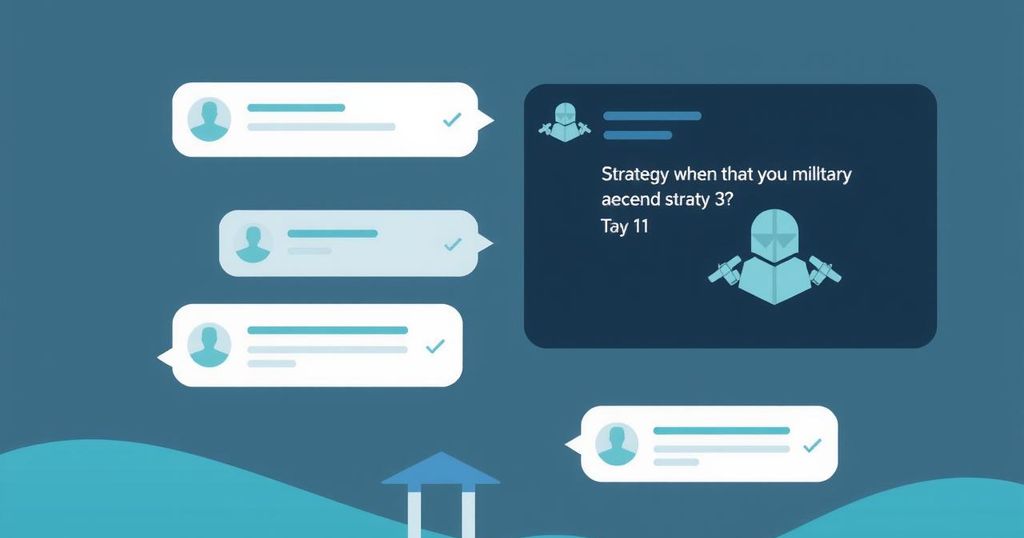Trump Administration Officials’ Group Chat Reveals Sensitive Yemen Bombing Plans
High-ranking Trump officials, including Defense Secretary Pete Hegseth and Vice President JD Vance, inadvertently included Atlantic editor Jeffrey Goldberg in a group chat discussing military operations against Houthi rebels in Yemen. The National Security Council confirmed the authenticity of the messages, while Goldberg expressed skepticism at first. The situation raised concerns regarding operational security and communication protocols among top officials.
Recent revelations have emerged regarding private discussions among high-ranking officials within the Trump administration concerning military operations targeting Houthi rebels in Yemen. Defense Secretary Pete Hegseth and Vice President JD Vance were reportedly part of a group chat that inadvertently included Jeffrey Goldberg, the editor-in-chief of The Atlantic, who detailed his unintended involvement in a timeline published on March 24, 2025.
Goldberg disclosed that he was added to an encrypted group chat on Signal, titled “Houthi PC small group,” by someone posing as National Security Adviser Mike Waltz. Within this chat, significant operational details regarding the timing, targets, and weaponry for impending strikes on Houthi positions were allegedly discussed.
The National Security Council, upon inquiry, confirmed the authenticity of these messages, stating they reflect thorough policy coordination among senior officials. The Council further emphasized that the operational success against the Houthis posed no risks to U.S. military personnel or national security.
Goldberg initially exhibited skepticism regarding the chat’s authenticity, suspecting a possible disinformation strategy aimed at discrediting journalists. However, he later received confirmation through subsequent messages about military strikes, which further validated his presence in the group.
The Houthi rebels, reported to be backed by Iran, have conducted various attacks on maritime vessels over the past year. These operations prompted President Trump to assert that Iran would face consequences for any further actions that threatened American interests.
On March 14, discussions within the group chat included debates about the strategic timing of the military action, with VP Vance expressing concerns about the broader implications for European relations. Despite these reservations, he indicated willingness to support the collective decision of the group.
Goldberg transparently recounted receiving operational details in the Signal chat, which, if leaked, could jeopardize military personnel and operations. He underscored how specific information shared regarding upcoming strikes against the Houthis was alarming in terms of operational security.
The timeline culminated with Trump confirming military action against the Houthi rebels shortly after the communication within the group chat, highlighting the risk of such open discussions among senior officials. The episode drew sharp criticism from Democratic Senator Jack Reed, who condemned the lack of discretion and operational security.
Reed remarked on the necessity of safeguarding military operations through secure communication channels, citing the dangers posed by perceived negligence within Trump’s cabinet. He has indicated intentions to seek further clarification from the Administration, emphasizing the need for accountability regarding this troubling breach in communication protocol.
The incident involving Trump administration officials discussing sensitive military operations in a group chat underscores significant lapses in operational security. The involvement of media personnel and the sharing of detailed plans in an unsecured format raises profound questions about the protection of American military interests. Criticism from officials such as Senator Jack Reed highlights the urgent need for stricter communication protocols to safeguard national security.
Original Source: www.news9.com








Post Comment